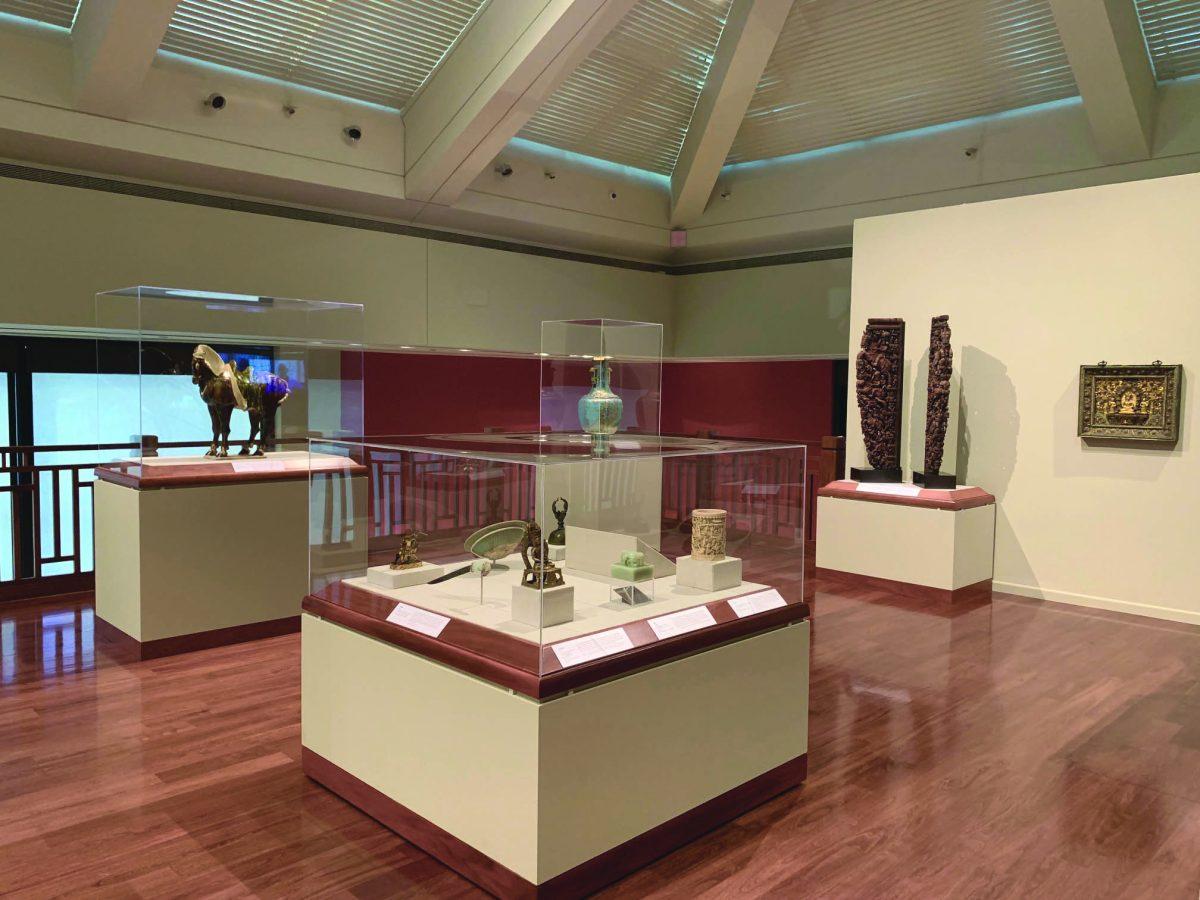Center to collaborate with the Crow Museum of Asian Art to promote academic interest of Asian culture
In an effort to increase interest and develop a higher understanding of Asian culture, UTD has founded the Center for Asian Studies, which aims to not only educate students, but also to equip them as global citizens.
Headed by former dean of the School of Arts and Humanities Dennis Kratz, the center is an extension of existing programs focused on Asian culture. With previous institutions having been mainly focused on Chinese culture, Kratz said the new center would allow the university to educate students on other Asian countries.
“Our goal is to promote the study of all aspects of Asia at UT Dallas — cultural, social, scientific and commercial,” he said. “To date, there have been disparate efforts in various parts of the university, but what we see is the opportunity here to have a central place to gather ideas, gather information and gather people and then have it disseminate outwards and have an impact throughout the curriculum and the life of the university.”
The center’s establishment coincides with the Crow Museum of Asian Art at UTD, an extension of the downtown museum. Having similar goals and interests, Kratz said he hoped both the center and museum would be a catalyst to encourage campus-wide study and appreciation of Asian culture.
“We’ll be working hand-in-hand with the Crow Museum to create programming to influence and enhance the academic programs available to students to enrich the enhancement of us as an educational institution, as a research institution and as a cultural resource for the community with regard to … not just Asia, but Asian Americans,” he said.
Beyond encouraging an academic appreciation of Asian culture, the center will also focus on preparing for modern day interaction with Asian companies. With the advent of the internet and the increasing rate of global development, Kratz said it is becoming increasingly critical for students to be 21st century citizens with a strong understanding of other cultures.
“Asia has the fastest – growing economies on the planet as has been demonstrated,” he said. “I think rather the US is inextricably bound with not just China, but all of Asia. So in terms of careers, I can’t think of many careers that won’t, in some way, be related to our interaction with the Asian countries and communities.”
Kratz said the center is currently in the process of establishing itself and pursuing its goals. As he works towards finishing unpacking, he said can see the potential for not only the center, but for UTD as a cultural institution.
“Think big. I see UTD as a center for Asian studies in the middle of the country,” Kratz said. “In 10 years, I see not this office, but I see a separate part. We hope to … start offering regular, significant lectures to the university community as a natural home for business and scientific colloquia because they can use the resources that are available here. I see UT Dallas is having a model program in Asian studies as a major in 10 years. And (the) sky is the limit.”
The center received support from Vietnamese Student Association cultural chair Tien Lu, who said she was excited for the potential of working to promote Asian culture with the center. With their similar goals, she said she wants to see collaboration between the center and various Asian cultural clubs.
“I would like to see them host cultural workshops of different Asian countries, or if they have anything to offer, maybe something artistic, like crafts of a particular Asian country or music,” Lu said.
With the university embracing the teaching of Asian culture, Lu said she was hopeful to see her school learn more about Asian countries. She said that helping students learn more about each other’s cultures would allow them to come closer together and create a stronger university community.
“The more aware you are of someone’s culture, the closer you are to that person. Basically I think (it) expands our knowledge. It’s a conversation starter, you can meet new people and you gain a lot from it,” she said. “You’re just putting yourself out there and then it’s making yourself more approachable and friendlier to other people.”













